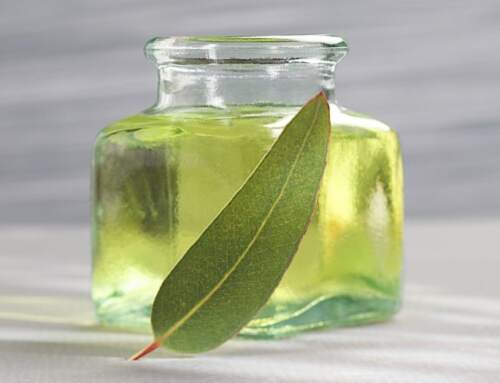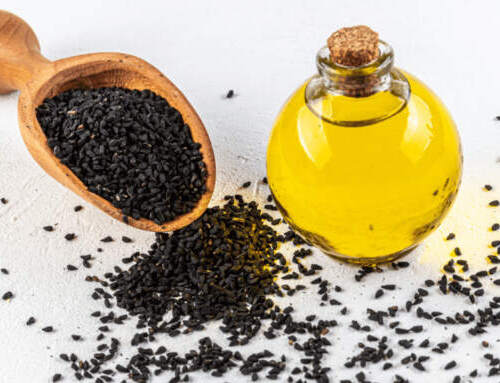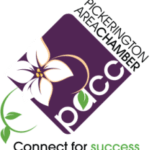Muscle Relaxers For Pain Relief
Welcome to a world where muscle relaxation meets nature’s embrace. In our quest for relief from the tight grip of muscle cramps and the nagging ache of sore muscles, we often turn to the quick fix of prescription muscle relaxers
However, nestled within nature’s own apothecary, we find a treasure trove of gentle giants — natural muscle relaxants that offer solace without the shadow of serious side effects. These time-honored remedies work not by silencing the body’s way of communication but by listening and responding to it, enhancing the healing process with every soothing rub of chamomile oil and every calming sip of chamomile tea.
While prescription muscle relaxers have their place in modern medicine, they often come with a suitcase of serious side effects that can weigh heavily on your entire body. Many find that these synthetic muscle relaxers, while effective at easing muscle tension, can also lead to drowsiness that affects the central nervous system, leading to a slower pace in day-to-day activities. For those who lead an active lifestyle or those of us who simply wish for a more natural approach, the good news is that there are alternatives. From the anti-inflammatory properties of herbal muscle relaxers to the pain relief offered by essential oil blends, nature provides a bounty of options. These natural muscle relaxants work in harmony with your body, promoting muscle relaxation without casting a shadow on your clarity or your body’s way of natural healing. They’re a testament to the fact that sometimes, the best solution is one that works with your body rather than overpowering it.
In this article, we unfurl the green carpet to introduce you to the best natural muscle relaxers, from the aromatic world of essential oils to the mineral-rich wonders of magnesium supplements. Whether it’s the sharp twinge of a strained neck or the deep throb of back pain, these natural remedies beckon with the promise of pain relief, muscle recovery, and a harmonious balance that aligns with your body’s innate wisdom. So, let’s explore how these all-natural powerhouses can transform our approach to muscle aches and lead us towards a path of holistic well-being, step by step.
Natural Muscle Relaxers
Dive into our master list of natural muscle relaxers. These proven remedies are your go-to for combating muscle pain and tension without the need for prescription drugs.
1. Massage
At Body Ache Escape, we know a thing or two about the transformative power of massage, which is why it’s no surprise that massage therapy tops our list of natural muscle relaxers. When your body cries out in pain, it’s a signal to pause and heal, a message often muffled by prescription muscle relaxers. Unlike these synthetic solutions that may obscure your body’s natural alerts and potentially extend discomfort, a skilled massage addresses the root of muscle tension. Our licensed therapists are experts at not just targeting the affected area but also treating your entire body to a holistic experience that loosens tight muscles, elevates blood flow, and kickstarts the healing process. For those enduring chronic pain or persistent muscle spasms, we recommend indulging in our top-tier massages at least monthly.
After all, the link between stress and muscle tightness is undeniable, and regular massage therapy is a proven ally, as evidenced by a 2011 clinical study from Taiwan, which highlighted the undeniable benefits of massage in managing muscle pain and boosting relaxation. So, let the journey to a pain-free life begin with our hands at Body Ache Escape, where every stroke is a step toward your body’s comfort and recovery.
2. CBD Ointment
In the quest for peak muscle relaxation, CBD oil emerges as a standout—and at Body Ache Escape, we understand its power firsthand. That’s why we proudly offer CBD Clinic Level 5 ointment as an add-on to our massage services. This premium ointment harnesses the natural way to soothe muscle aches and joint pains, diving deep into the tissue with its potent anti-inflammatory properties. It’s not just any CBD ointment; Level 5 is renowned for its high-quality ingredients that provide serious relief for muscle tension.
The ointment works in concert with our massage therapy, amplifying the benefits and effectively targeting the areas that need it most. Clients find that this dynamic duo of massage and CBD ointment not only elevates the relaxation experience but also significantly shortens the recovery time for muscle soreness, making it an excellent choice for anyone looking to enhance their body’s own healing capabilities. [Foods that contain cannabinoids]
3. Arnica Oil
Arnica, a natural warrior against muscle aches, takes a prime spot in our arsenal at Body Ache Escape for its remarkable muscle-relaxing prowess. When arnica is applied to the skin, whether it’s as an oil, cream, or salve, it brings a potent punch to inflammatory woes and exercise-induced strains. It’s not just folklore; the efficacy of arnica is backed by evidence showing its ability to alleviate pain, reduce inflammation markers, and minimize muscle damage.
The secret lies in thymol, a component of arnica that acts as a vasodilator, enhancing blood flow and fluid transport to and from the affected muscles. This action not only supports the body’s own healing mechanisms but also encourages the dispersal of fluids from congested muscles and joints. By stimulating white blood cells, arnica oil works to clear out bruised tissue and ease muscle tension, securing its spot as a go-to remedy for those in the know.
4. Essential Oils
Incorporating essential oils into your routine can be a transformative step towards muscle relaxation and pain relief. At Body Ache Escape, we appreciate the potent properties of these natural extracts, particularly peppermint oil. Revered as a natural painkiller, peppermint essential oil is adept at easing muscle aches and providing relief from the discomforts of an aching back or a tension headache. Its cooling sensation works as a herald of relief, signaling a reprieve for sore muscles and contributing to the overall relaxation of the body.
Recent studies lend credence to the topical application of peppermint oil, revealing its efficacy in providing pain relief for conditions like fibromyalgia and myofascial pain syndrome. By blending it with a carrier oil such as jojoba or coconut oil, or even a neutral lotion, it can be gently massaged into the skin, targeting the areas that need attention and promoting a soothing effect. [Read all about carrier oils here]
Lemongrass essential oil, another jewel in the crown of herbal remedies, is known to enhance blood circulation, a vital component of the muscle relaxation process. Improved circulation not only nourishes muscle tissue but can also be instrumental in easing spasms and soothing backaches. Other oils like frankincense, cypress, clary sage oil, lavender oil, and eucalyptus essential oil are celebrated for their anti-inflammatory properties, working in tandem to bolster circulation and alleviate spasms, which contributes to their pain-reducing prowess. [Different Ways to Use Essential Oils]
4. Chiropractic Adjustments
Chiropractic adjustments stand out as a pivotal element in the realm of natural muscle relaxers. By realigning the spine and correcting joint dysfunctions, chiropractic care can effectively alleviate muscle tension and pain. This form of treatment delves into the structural causes of muscle discomfort, providing a solution that’s not merely surface-level but rather foundational. It’s a practice that believes in the body’s intrinsic ability to heal and maintain balance, with the chiropractor’s skilled hands guiding it back to its natural state of harmony.
The relief experienced after a chiropractic adjustment can be likened to the release of a tightly wound string, allowing the body to relax and let go of the tension that’s been building up. This is particularly beneficial for those with chronic pain, such as lower back pain or neck pain, where the interplay of muscles and joints is often a significant contributor to discomfort. By restoring proper alignment, chiropractors help to ensure smooth and improved blood circulation, which is essential for healing and muscle relaxation. Moreover, adjustments can reduce nerve irritation, which is often the root of muscle spasms, and encourage the body’s way of self-correction, making chiropractic care a potent ally in the pursuit of natural pain relief and muscle relaxation.
5. Magnesium
Magnesium is a powerhouse when it comes to natural muscle relaxation, directly countering muscle tension and cramps. Essential for over 300 biochemical reactions in the body, it’s a key player in muscle contraction and relaxation. By integrating magnesium supplements into your routine or indulging in magnesium-rich foods, such as brown rice and dark leafy greens, you can bolster your internal magnesium levels. This proactive step is crucial, especially for older adults who might experience signs of magnesium deficiency, manifesting as muscle aches or spasms.
Taking a warm Epsom salt bath not only offers a moment of tranquility but also serves as a potent form of magnesium supplementation through the skin. This method promotes blood circulation and aids the muscle fibers in unwinding, particularly after exercise-induced muscle damage. The soothing effects of such a soak can mitigate muscle inflammation and accelerate recovery time, offering a natural remedy for anyone from marathon runners to those with a more sedentary lifestyle. In the landscape of muscle relaxers, magnesium is a gentle giant, providing a safe and effective way to support the body’s way of healing and maintaining muscle health without the serious side effects that can accompany synthetic options. [How is Magnesium Also Great for the Brain]
6. Capsaicin
Capsaicin, the active ingredient that gives cayenne pepper its heat, is also a natural muscle relaxant revered for its pain relief properties. When applied topically, capsaicin creams and ointments act as counterirritants, distracting the body from muscle pain with a warm, tingling sensation. This compound effectively diminishes the intensity of pain signals sent to the brain by depleting substance P—a neurotransmitter that transmits pain signals—resulting in temporary relief from muscle aches and stiffness.
Moreover, capsaicin is known for its anti-inflammatory properties, helping to reduce swelling and inflammation in the affected muscles. It encourages increased blood flow to the area, which is vital in the healing process and can help alleviate muscle soreness commonly experienced by athletes or those with chronic pain conditions. For those seeking a natural way to manage muscle discomfort, capsaicin presents itself as a potent option to integrate into their pain management regimen. Whether it’s the occasional muscle cramp or the more persistent muscle tension, incorporating a capsaicin-based product could be a game-changer, providing not only relief but also the warmth of nature’s touch in the recovery journey.
7. Valerian Root
Valerian root, often hailed for its sedative qualities and sleep aid, also emerges as a formidable ally in the battle against muscle pain. Its properties extend beyond sleep aids, positioning it as a noteworthy natural muscle relaxant. When used topically in the form of a cream or ointment, valerian can directly soothe tense muscles and alleviate discomfort. Its potential to relieve pain when applied to the skin is matched by its effectiveness when taken orally, offering a systemic approach to muscle relaxation.
The roots of this ancient herb contain volatile oils and compounds that have been shown to calm the nerves and relax the muscles, making it particularly beneficial for those with muscle cramps or spasms. For people seeking a holistic approach to managing muscle pain, whether it’s due to overexertion or stress-induced muscle tension, valerian presents a compelling, natural option. By encouraging the body to unwind and the muscles to release their tight hold, valerian supports the body’s way of healing and provides a gentle, effective route to relief and relaxation.
8. Pomegranate Juice
Pomegranate juice is not just a refreshing beverage; it’s also a potent aid for muscle recovery post-exercise. Packed with antioxidants, this vibrant elixir combats oxidative stress, a common culprit behind muscle soreness after intense physical activity. The antioxidants in pomegranate juice help to neutralize free radicals, which can damage cells and exacerbate inflammation, thereby speeding up the muscle healing process.
Athletes and fitness enthusiasts may find drinking pomegranate juice to be a great way to reduce the duration and intensity of muscle soreness, allowing them to return to their training regimens more quickly. Its natural sugars also provide a quick source of energy, replenishing the body’s reserves after a workout. By incorporating pomegranate juice into their recovery routine, individuals can enjoy not just the taste but also the natural muscle-relaxing benefits that support their overall fitness and well-being.
9. Tart Cherry Juice
Tart cherry juice is emerging as a standout natural muscle relaxer, often compared to other natural remedies for its effectiveness in easing muscle soreness and inflammation. Packed with antioxidants, it aids muscle recovery post-exercise by reducing oxidative stress and the accompanying muscle pain. Its anti-inflammatory properties also make it a valuable ally against joint pain and muscle cramps, offering relief that’s comparable to over-the-counter muscle relaxants but without any unwanted side effects.
For athletes or anyone engaging in physical activity that leads to sore muscles, incorporating tart cherry juice into their diet can help accelerate the recovery process. It’s not only beneficial after a strenuous workout but can also contribute to better sleep patterns, further assisting the muscle healing process. The natural compounds in tart cherry juice, such as anthocyanins, have been shown to help reduce inflammation and discomfort, making it a powerful, tasty addition to any natural health regimen.
As we wrap up our exploration of natural muscle relaxers, we’re reminded of the abundant resources nature provides to soothe our bodies and promote healing. For those battling rheumatoid arthritis or experiencing the sharp discomfort of nerve pain, natural supplements can offer significant relief. Incorporating foods rich in Vitamin D and natural sources like olive oil into your diet is not only a good idea for general health but can also have a positive effect on muscle and joint pain.
Warm water soaks, perhaps with Epsom salt, have been a mainstay in human nutrition and therapy, helping to ease muscle soreness and menstrual cramps. And for acute pain, such as that felt around the rib cage or from spastic muscles, the targeted application of capsaicin cream can provide quick relief, much like the soothing impact of ice packs on inflamed areas.
It’s clear that whether you’re dealing with everyday soreness or the more intense pain of muscle cramps and spasms, there are myriad natural options to explore. From the deep relief provided by a soak in warm water to the systemic benefits of Vitamin D and olive oil, each remedy offers its own unique benefits. And while nonsteroidal anti-inflammatory drugs are commonly reached for, natural alternatives often offer relief with fewer side effects.
Remember, consulting with a health care provider before starting any new treatment is always a wise decision, especially when transitioning from prescription drugs to natural methods. With a plethora of options at your fingertips, from natural supplements to the wise use of essential oils, your path to muscle relaxation and pain relief can be as natural as it is effective. Here’s to finding the balance and relief your body deserves, in the most natural way possible.
For personalized care and a natural approach to muscle relaxation, schedule your soothing massage at Body Ache Escape today and take the first step towards a more comfortable, pain-free life.





